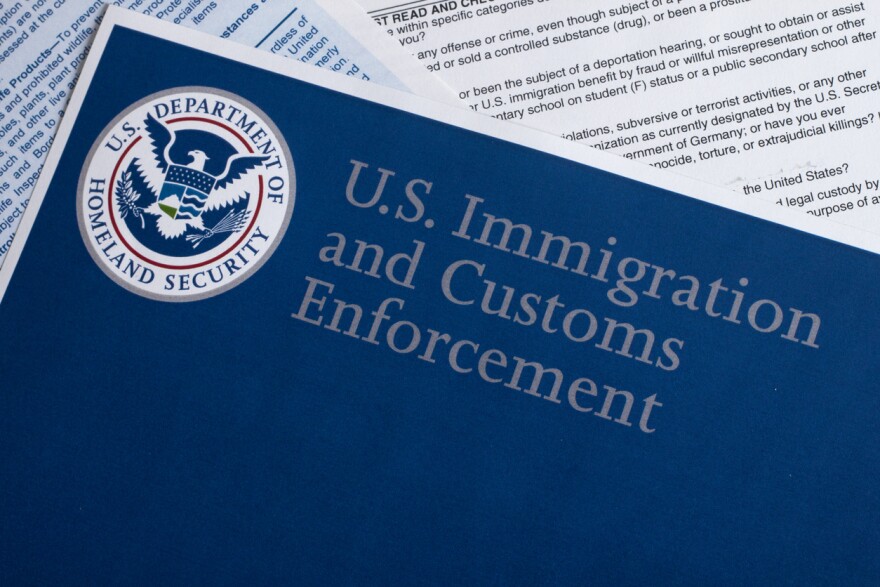In the past few months, headlines about U.S. visa revocations, ICE enforcement, and rising deportations have unsettled many African immigrants. Families who once dreamed of building stability in America now live in fear of canceled travel plans, detention, or even forced return.
From Nigeria to Zimbabwe, South Sudan to Zambia, African professionals, parents, and students are finding their lives disrupted—not by personal choices, but by these sudden policy shifts and immigration crackdowns. The real consequences beyond these policies are the toll they have on marriages, individuals, and families.
What’s Happening Across Africa
Nigeria: Quiet Cancellations
In Nigeria, valid visas are being quietly revoked. Reports revealed that Nigerians who had secured U.S. visas—some even after extensive vetting—were suddenly told to submit their passports only to find them stamped “canceled.”
The official explanation was vague, citing “new information” under U.S. law (22 CFR §41.122). Professionals, students, and even a government official scheduled for an international address were affected, leaving families stranded and financially drained.
South Sudan: Collective Punishment
South Sudanese officials condemned U.S. revocations as “unfair” after the entire country’s visa privileges were suspended over a single deportation dispute. Authorities argued it was a mistaken identity case, yet the policy punished families and professionals indiscriminately.
Zimbabwe: Visa Processing Suspended
In Zimbabwe, the U.S. Embassy halted nearly all visa processing in August 2025, except for diplomats. Reuters reported that this left students, scholars, and families stuck, unable to pursue education or reunite with loved ones abroad.
Malawi and Zambia: The Price of Entry
The U.S. has introduced visa bonds of up to $15,000 for applicants from Malawi and Zambia. Critics argue that this unfairly targets ordinary Africans and blocks access to opportunities in America.
Deportations Across Africa
Under new repatriation agreements, the U.S. has deported individuals to Rwanda, Eswatini, South Sudan, and Uganda. In one case, five men deported to Eswatini remain imprisoned under unclear charges. Nigeria itself has seen 902 deportations between 2019 and 2024, the highest in Africa.
The Role of ICE
While visa revocations affect families abroad, ICE (U.S. Immigration and Customs Enforcement) shapes daily life for African immigrants already in America.
Rising Arrests and Detentions
In FY 2023, over 273,000 people were booked into ICE custody, with nearly 28,300 detained on an average day. These figures include students who overstayed, workers who lost status, and asylum seekers whose cases were denied.
For African families, the impact is severe. Parents disappear into detention after routine traffic stops. Students are pulled into investigations over paperwork errors. Communities live with the constant anxiety of raids, unsure if they or their neighbors will be next.
Deportation Agreements
New “safe third country” deals and deportation treaties have broadened ICE’s reach into Africa. In August 2025, Rwanda confirmed it received seven deportees from the U.S. under a new agreement. Similar returns are happening across Uganda, South Sudan, and Eswatini.

Why This Is Happening
- Legal Grounds for Revocation: U.S. law allows visa revocations if new information surfaces, if there are misrepresentations, or if eligibility changes even after approval.
- Security and Reciprocity Concerns: Countries with high visa overstay rates or strained diplomatic ties often face stricter measures. For instance, Zimbabwe’s overstay rate of 10.57% has been cited as justification.
- Political Shifts: Visa revocations, suspensions, and deportations often spike with policy changes. Agreements like Trump’s “safe third country” policies and renewed ICE priorities play a direct role in shaping the realities of African immigrants.
The Human Cost on African Families
1. Strained Marriages
Couples face painful uncertainty. Plans to travel together, visit family, or reunite after years apart are suddenly canceled. For some, long-distance marriages stretch further under the weight of canceled visas and deportation fears.
2. Parenting Interrupted
Grandparents planning to fly in to help with new babies are grounded. Children miss out on cultural bonding trips. Some even experience trauma watching a parent detained or deported.
3. Financial Strain
Families lose money on non-refundable tickets, canceled bookings, and costly legal consultations. Add to this the constant need to reapply or appeal, and the financial toll becomes crushing.
4. Mental Health Struggles
Families live with fear, shame, and confusion. The anxiety of waiting for updates, the dread of unexpected ICE knocks, and the pain of canceled reunions take a lasting toll on mental health.
What Families Can Do
While the challenges are daunting, African families are finding ways to stay resilient.
- Seek Legal Guidance Early: Always consult licensed immigration lawyers before making travel or appeal decisions. Many diaspora organizations run free or low-cost legal clinics.
- Check and Track Your Status: Regularly review your I-94 records and ensure your documents are current. This is because even small lapses can trigger consequences.
- Document Losses and Notices: Keep copies of all cancellation notices, emails, receipts, and legal fees. These records are vital for appeals or insurance claims.
- Use Redress Programs: The DHS TRIP program helps resolve issues like mistaken identity or security misflags that block travel.
- Lean on Community Support: Churches, mosques, and cultural associations often provide emotional support and advocacy. These networks are lifelines during uncertainties such as this.
- Prioritize Mental Health: Counseling, therapy, or even community support groups help families manage the stress of living under immigration pressure. Protecting mental health is as vital as protecting legal status.
Looking Ahead
Immigration will remain unpredictable. Visa revocations may continue. ICE enforcement may intensify. Deportations may increase.
But what cannot be revoked is the resilience of African families. Behind every revoked visa or deportation notice is a family fighting to stay connected, to stay hopeful, and to keep love at the center of their story.








